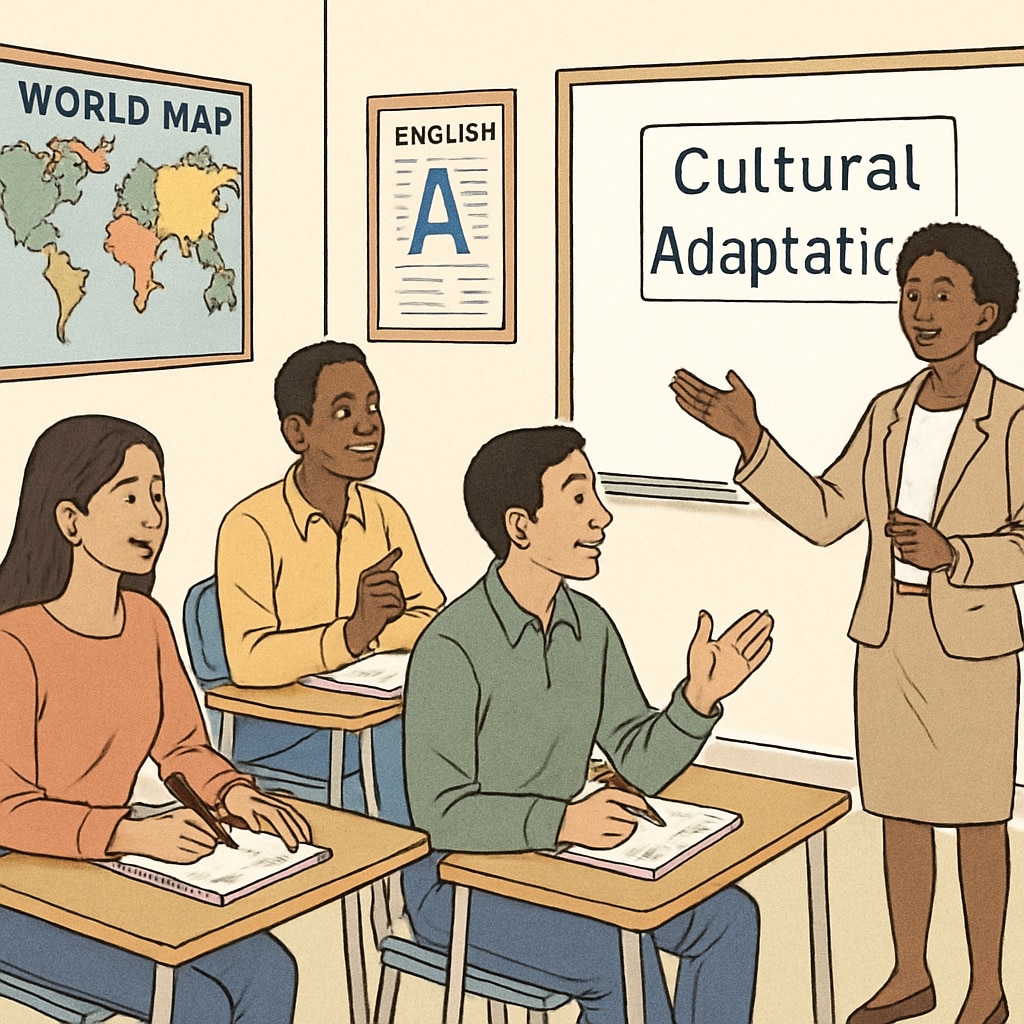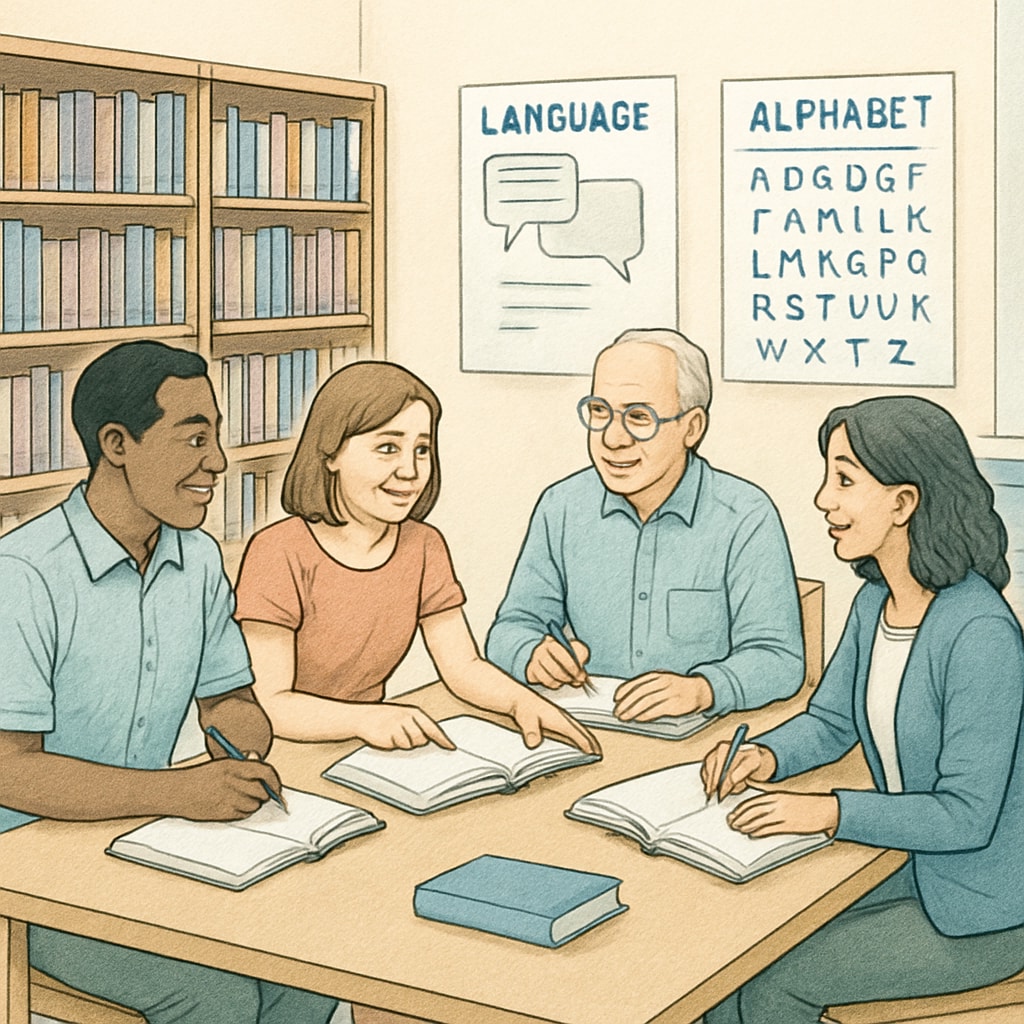The journey of adult international students into Western educational systems can be both exciting and challenging. Adjusting to a new culture while navigating adult education programs often requires a deep understanding of cultural norms, foundational knowledge, and consistent support. This article provides practical insights into how international students can successfully overcome these hurdles, focusing on adult education, cultural adaptation, and foundational knowledge.
Understanding the Importance of Cultural Adaptation
Cultural adaptation is a critical step for adult international students as they transition into Western societies. Adjusting to new customs, social norms, and academic expectations can feel overwhelming. However, it is essential for building confidence and fostering success. For instance, many Western educational systems emphasize participation, critical thinking, and individual learning approaches, which may differ from the educational styles students are accustomed to in their home countries.
To ease this transition, it is beneficial to learn about the local culture through structured programs. Many institutions offer cultural orientation workshops tailored for international students. These sessions provide valuable insights into classroom etiquette, communication styles, and even day-to-day activities like grocery shopping or public transportation use.

Finding the Right Adult Education Programs
The foundation of successful integration lies in identifying adult education programs designed to meet the unique needs of international learners. These programs often combine language training with cultural studies, enabling students to gain both linguistic proficiency and cultural awareness. For example, community colleges and adult learning centers frequently offer English as a Second Language (ESL) courses alongside classes on Western history, workplace culture, and social norms.
When searching for a program, consider the following factors:
- Accreditation: Ensure the program is certified and recognized by educational authorities.
- Flexibility: Look for part-time or evening classes that fit your schedule.
- Support Services: Opt for programs with counseling, tutoring, or mentorship services.
- Community Engagement: Seek courses that encourage interaction with local communities.
For example, the Wikipedia page on ESL programs provides an extensive overview of available courses worldwide. Additionally, institutions like community colleges in the United States have tailored offerings for adult learners.
Utilizing Community Resources for Support
Community resources play a crucial role in helping international students integrate into Western culture. Libraries, local cultural associations, and student organizations often provide free or low-cost workshops and networking opportunities. These resources can help students practice their language skills, build new relationships, and gain a better understanding of their new environment.
For example, public libraries frequently host conversation groups where learners can practice English with native speakers. Similarly, cultural associations such as the Alliance Française or Goethe-Institut offer cultural events that provide informal opportunities to learn about Western traditions.

Creating a Personalized Learning Path
Every student’s journey is unique, and creating a personalized learning path can significantly enhance the adaptation process. Begin by setting clear goals—whether it is improving language skills, gaining professional qualifications, or simply becoming more comfortable in social settings. Once your objectives are defined, break them down into smaller, achievable steps.
Here are a few strategies to create a personalized learning path:
- Identify your strengths and weaknesses in cultural knowledge and foundational skills.
- Set a realistic timeline for achieving each goal.
- Incorporate diverse learning methods, such as online courses, in-person classes, and self-study.
- Seek feedback from peers, mentors, or instructors to track your progress.
As a result, this tailored approach ensures that students remain motivated and focused throughout their educational journey. Platforms like Britannica’s education section offer additional resources for understanding how education systems work globally.
Conclusion: Overcoming Challenges Through Preparation
Adapting to a new culture and educational system as an adult international student is undoubtedly a challenge. However, with the right resources, programs, and personalized strategies, students can successfully navigate this transition. By focusing on adult education, cultural adaptation, and foundational knowledge, learners can build bridges to a brighter future in their new home.
Remember, the key to success lies not just in academic achievement but also in embracing the cultural richness of your new environment. Take advantage of the resources available to you and enjoy the journey of growth and discovery.


